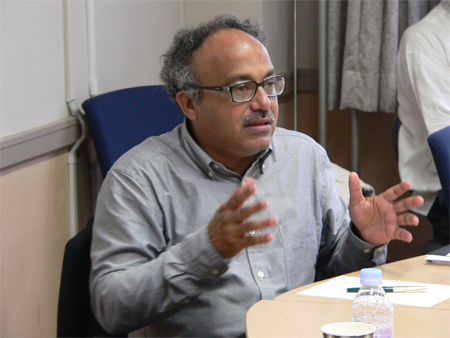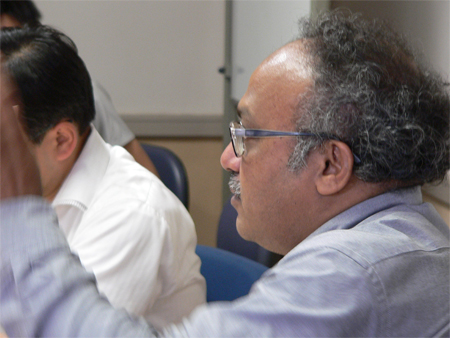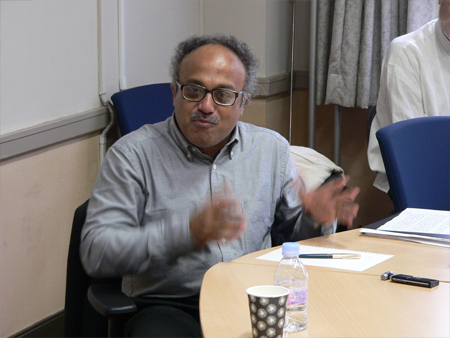[Report] UTCP Lecture "Secularisation and the Political: The Indian Context"
On July 15, 2010, UTCP invited Dr. Rakesh Batabyal of Jawaharlar Nehru University (New Dehli, India). His lecture was titled “Secularisation and the Political: The Indian Context”.

Dr. Batabyal is now visiting professor at the Graduate School of Interdisciplinary Information Studies, University of Tokyo during this semester and will leave for India next month (i.e. August 2010). He is a specialist in contemporary Indian history. He has recently published Communalism in Bengal: From Famine to Naokhali, 1943–47, New Dehli, 2005.
In this lecture, Dr. Batabyal first talked about the definitions of and differences among notions such as “secular”, “secularization”, and “secularism”. According to him, there are diverse discussions, particularly, on secularization. In this lecture, he focused on the political notion of secularization. He argued that secularization in the Indian context is different from that in Western contexts.

In the latter part of his lecture, he introduced some important features of secularization in India. Sometimes mentioning a great diversity in India, he pointed out that Indian social structure is based on an artful balance, and thus the existence of a small number of fanatical fundamental groups and terrorism in the name of the God can easily undermine the system. In his view, eastern religions such as Hinduism, Buddhism, Jainism etc. are different from Semitic monotheism (Christianity, Islam, and Judaism) in Western countries and the Middle East. Thus it is not suitable to apply the Western model of secularization to the Indian context. Dr. Batabyal defined secularization in India as “a space for all the groups for good life,” and he added that secularization and democracy are closely connected with each other in India. Democracy allows all individuals and groups to have the notion of “good life”.
Last, Dr. Batabyal claimed that a combination of democracy and secularization is indispensable for sustaining social securities and stabilities in India, which has a great number of communal groups and individuals.

After the lecture, we talked about many topics such as the main reason to unify India today, the notion of “religion” of Rammohan Roy, the Hindu reformist in the first half of nineteenth century, and the relation between ethnicity and fundamentalism.
Written by Naofumi ABE (UTCP)






